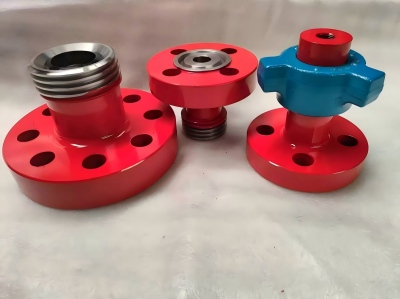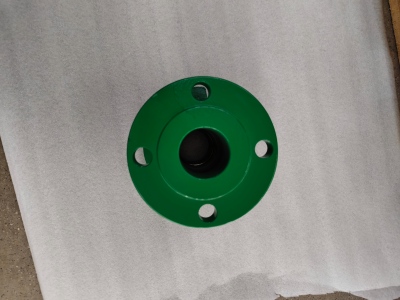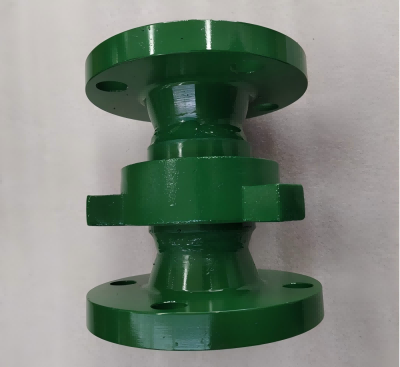15K Swivel Spools
Product Overview
The swivel spool(spacer spool/swivel coupling) is a commonly used connection component in oil & gas wellhead equipment and manifold systems. Its main functions are:
Connecting the wellhead to the blowout preventer(BOP) or manifold, it serves as a height compensation and flange transition piece.
Allowing the flange end to rotate, if facilitates alignment and installation, reducing assembly complexity.
Reducing stress: Rotation relieves manifold torque in high-pressure environments, preventing uneven stress on the equipment.
It is commonly used in high-pressure wellheads, choke manifolds, kill manifolds, and fracturing manifolds.
Main parameters
Bore size: 2-1/16" ~ 13-5/8"
Working pressure: 2000-15000psi
Connection method: API6B/6BX flange connection, RTJ (metal ring gasket) seal
Material: High-strength alloy steel(commonly AISI 4130/4140)quenched and tempered heat treatment.
Temperature grade: K/L/U/Y(-60°C-121°C)
PSL grade: PSL1-PSL4
PR grade: PR1/PR2
Applied environment: Compliant with NACE MR0175/ISO 15156(sulfur-proof environment)

Structural features
Rotation design: one or both flanges can be rotated, allowing for flexible adjustment of bolt hole positions during installation.
High-pressure seal: Utilizes API-standard RTJ annular metal seals for reliability and durability.
Integrally forged: The main body is machined from a single forging, providing high strength and toughness.
Adaptability: can be used as a spacer spool to meet various wellhead height requirements.
Corrosion protection: Nickel plating, phosphating, or epoxy coatings are available upon request.
Typical applications
Wellhead system: Connects the tubing head, casing head and BOP.
Choke manifold: Used to connect pipe sections before and after the choke valve.
Kill manifold: Withstands high-pressure fluids during kill operations.
Frac manifold: Used as a temporary high-pressure manifold for acidizing, fracturing and other applications.

Maintenance and usage precautions
During installation, use API-standard RTJ metal ring gaskets.
Tighten flange bolts according to API recommended torques to avoid overtightening or undertightening.
Regularly inspect rotating parts and maintain lubrication to prevent seizure.
During storage, apply anti-rust oil and keep covered to prevent dust and moisture.


